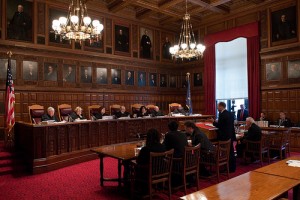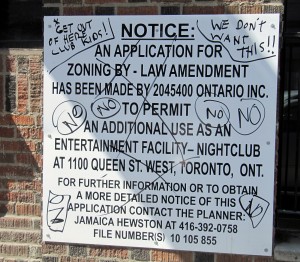Even though there was no disagreements among the federal circuit courts of appeals at the time, Court watchers were shocked with the Supreme Court denied certiorari in a series of cases striking down same-sex marriage bans. All eyes then turned to the Ninth and Sixth Circuits who had pending cases. The next day the Ninth Circuit struck down Nevada’s and Idaho’s ban. On November 6 the Sixth Circuit became the first federal circuit court to uphold bans in four states (Michigan, Tennessee, Ohio, and Kentucky).
In 12 bullet points Lyle Denniston of SCOTUSblog summarizes the Sixth Circuit’s majority opinion. Judge Sutton eloquently explains why he parted company with his colleagues who decided the other cases: “When the courts do not let the people resolve new social issues like this one, they perpetuate the idea that the heroes in these change events are judges and lawyers. Better, in this instance, we think, to allow change through the customary political processes, in which the people, gay and straight alike, become the heroes of their own stories by meeting each other not as adversaries in a court system but as fellow citizens seeking to resolve a new social issue in a fair-minded way.”
While the Supreme Court doesn’t resolve every circuit split immediately, given the significance of this issue it would be shocking if the Court didn’t resolve it shortly. As Lyle Denniston describes on SCOTUSblog this does not necessarily mean that the Court will hear the Sixth Circuit’s case—the Ninth Circuit ruling could also be appealed or the Court could grant review in a case pending, not yet decided, from another circuit.
But the mostly likely outcome (now that we know none of the plaintiffs will ask all of the Sixth Circuit judges to rehear the case) is that the Court will accept the Sixth Circuit case for review.
So maybe the only question is will the Court hear the case this term or next? One petition has already been filed. If all petitions and responses are ready for the Justices by their January 9 conference this case will be heard and decided by the end of June.
(Photo courtesy of Flickr by Stefan Ogrisek, creative-commons license, no changes made).














